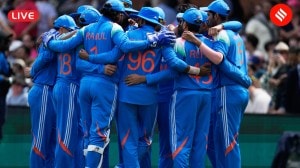Chidambaram’s Rs 10,000 solution finds few takers
Whether he likes it or not, the FM’s move to check black money has become the talking point of Budget 2005.Here’s the fine-print: ...

Whether he likes it or not, the FM’s move to check black money has become the talking point of Budget 2005.
Here’s the fine-print: a cash withdrawal of Rs 10,000 or more in a single day will attract a tax at the rate of 0.1 per cent. As long as a person or a firm pays cash, the tax will also be applicable to the purchase of a bank draft or banker’s cheques. Ditto for receipt of cash from a scheduled bank over Rs 10,000 on a single day on encashment of a term-deposit. The onus of collection is on the banks.
The problem, however, say experts is that the bulk of black money transactions do not happen from bank accounts. Further, in the name of trying to tap black money, the tax will create a burden, however small, for a number of honest tax payers who need to withdraw cash above Rs 10,000 in a day.
Companies are upset too, saying they often have to make cash payments to labour that doesn’t have a bank account. This applies in particular to sectors like textiles, construction, and all the industries in the small-scale industry.
But Finance Minister P. Chidamabaram tried to downplay the tax by saying it’s a small part of the Budget. “People who are complaining of the tax are not complaining because of the Rs 10 they have to pay on Rs 10,000 withdrawal, but on the trail the tax will leave,’’ he said.
But Corporate India and tax experts are unconvinced. Says Saurav Srivastava, Chairman of Xansa: “I don’t understand why the provision is there. People will either simply get away with withdrawing Rs 9,999 a day. Besides, what happens if someone is withdrawing cash in an emergency situation or to pay salaries?”
Tax consultant O.P. Vaish agrees that there are serious implementation issues, which he thinks Parliamentarians themselves will shout out.
Stage for a roll-back?





- 01
- 02
- 03
- 04
- 05


























